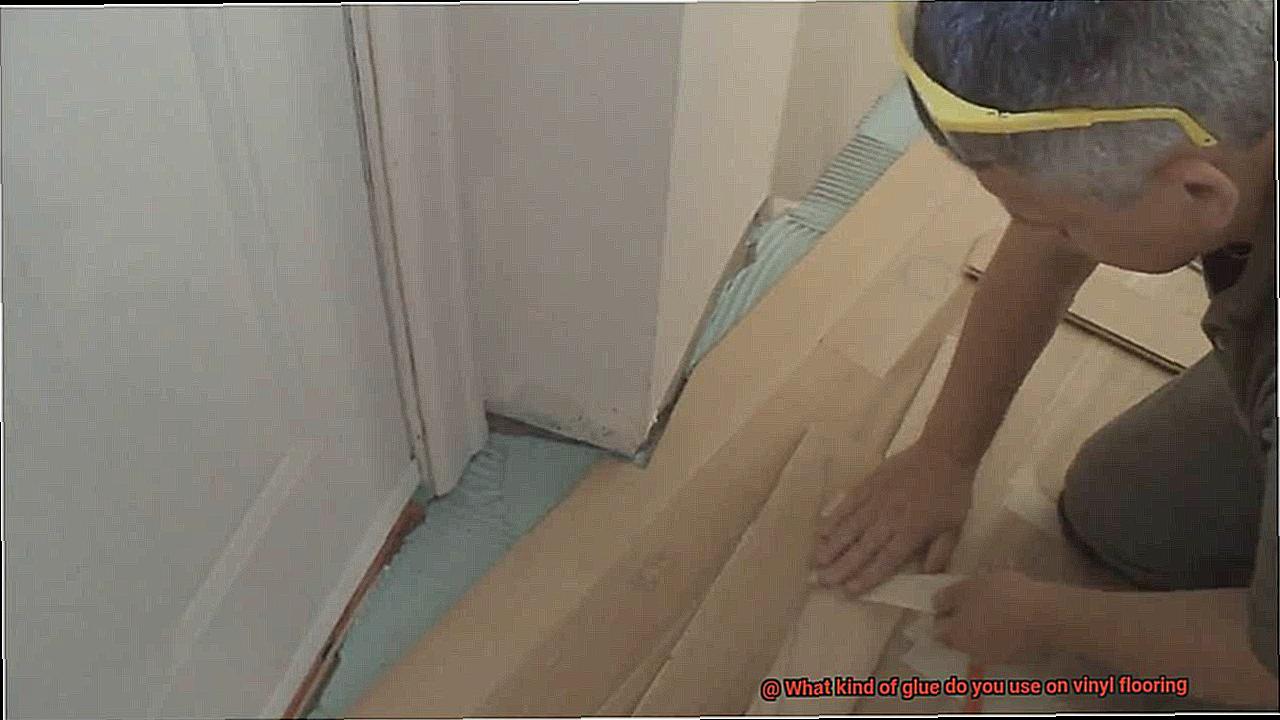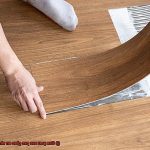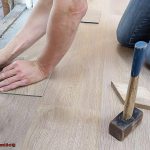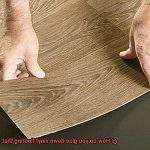Do you find yourself staring at your vinyl flooring, frustrated with its peeling and bubbling? Or maybe you’re planning on installing a new vinyl floor but unsure of what glue to use. Well, fear not. You’ve stumbled upon the ultimate guide to selecting the perfect adhesive for your vinyl flooring needs.
Vinyl flooring is a popular choice for its durability and easy upkeep, but it’s only as good as the glue used to install it. With so many options available in the market, choosing the right adhesive can be overwhelming. Do you go for pressure-sensitive, contact, or full spread adhesive? And how much do you need?
Don’t worry; we’ve got your back. Our team has researched and tested various adhesives to provide you with expert advice on what kind of glue to use on vinyl flooring. In this blog post, we’ll discuss different types of adhesives available, their application methods and factors to consider when selecting and using glue for your project.
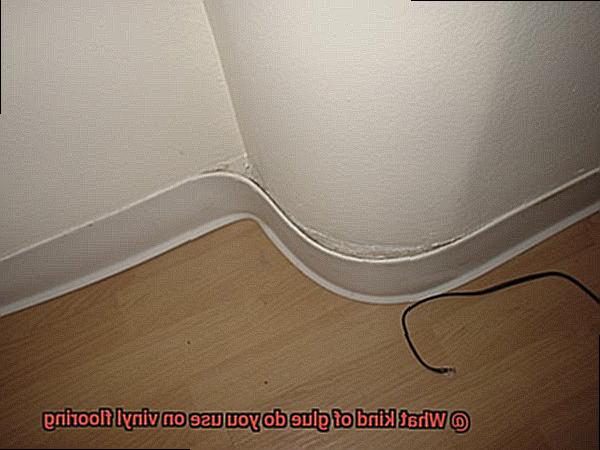
So let’s dive in together and learn all about how to secure that perfect vinyl floor covering.
Types of Vinyl Flooring
Contents
However, deciding which type of glue to use during installation can be overwhelming. There are two main types of vinyl flooring: sheet vinyl and luxury vinyl tile (LVT), each requiring a different type of adhesive.
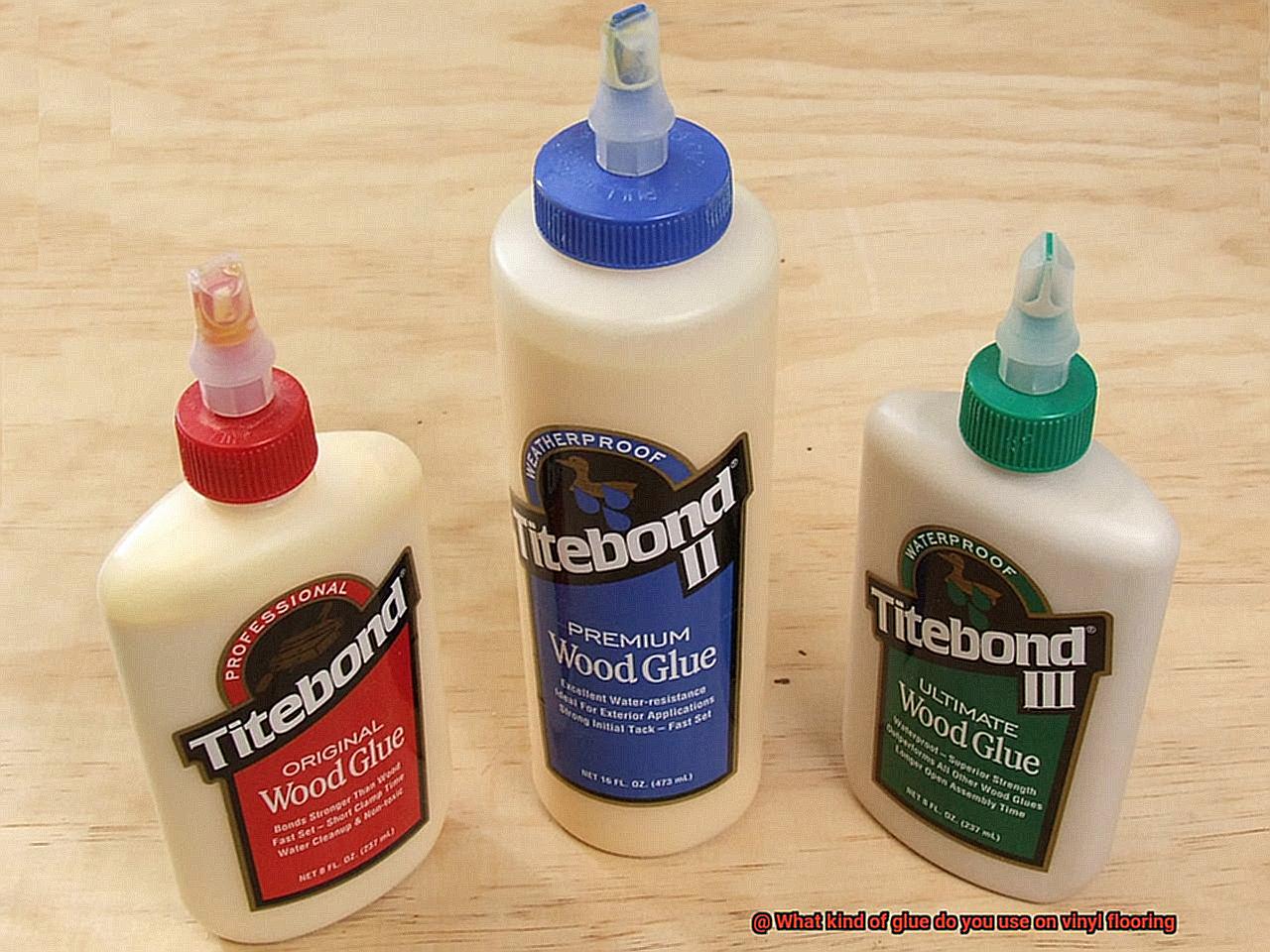
Sheet vinyl typically requires a full spread adhesive that covers the entire subfloor before the vinyl is laid down. This adhesive is typically a pressure-sensitive type, which allows for easy repositioning during installation. In contrast, LVT can be installed using either a full spread adhesive or a perimeter adhesive, which only requires adhesive around the edges of the room. LVT also offers an option for a “peel-and-stick” adhesive backing on individual tiles or planks, allowing for quick and easy installation.
It’s essential to keep in mind that not all vinyl flooring types require adhesive. Loose lay vinyl plank flooring, for instance, has a heavy backing that keeps it securely in place without any additional glue or adhesive.
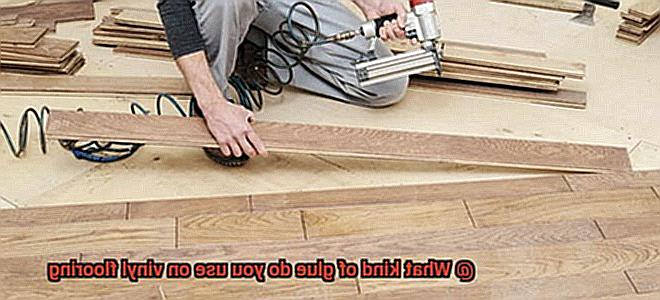
When selecting an adhesive for your vinyl flooring installation, consider factors such as the type of flooring being installed and the condition of the subfloor. Always follow manufacturer recommendations and consult with a professional if you’re unsure about which type of glue to use.
Condition of Subfloor
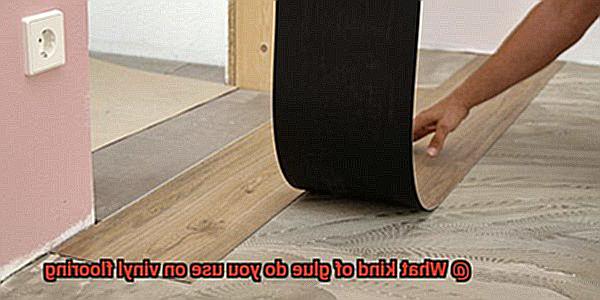
Today, we’re going to delve into a critical aspect of vinyl flooring installation: the condition of the subfloor. As a seasoned expert in this subject, I cannot emphasize enough how crucial it is to assess the subfloor’s condition before laying down your gorgeous new vinyl flooring.
First and foremost, let’s talk about unevenness. An uneven subfloor can cause your vinyl flooring to buckle or warp over time. Before installation, it’s essential to check for any bumps, dips, or cracks in the subfloor. If you find any issues, address them immediately so that they won’t affect the durability and longevity of your vinyl flooring.
Another vital consideration is moisture. Moisture can seep through the subfloor and cause damage to your vinyl flooring. Therefore, it’s crucial to check for signs of moisture such as water stains, mold, or mildew on the subfloor before installation. If you spot any signs of moisture, it’s imperative to address them before installing your vinyl flooring.
Now, let’s talk about glue. The type and amount of glue used on your vinyl flooring will depend on the type of subfloor you have. For concrete subfloors, a latex-based adhesive is typically used. For wood subfloors, a solvent-based adhesive is often preferred.
It’s vital to follow the manufacturer’s instructions when applying glue to ensure that it bonds correctly with both the subfloor and vinyl flooring. Applying too little adhesive can cause your vinyl flooring to come loose over time, while applying too much can create bumps or unevenness in your finished product.
Pressure-Sensitive Adhesive
This versatile adhesive is a pre-mixed, ready-to-use formula that simplifies the installation process. You won’t have to worry about any additional preparation or mixing, and you can apply it directly onto the subfloor using a trowel or roller.
What’s great about PSA is that it can be used on both porous and non-porous surfaces, making it ideal for various types of subfloor materials. It’s also moisture-resistant, which is crucial for areas prone to humidity or moisture, such as bathrooms or kitchens.
But here’s where PSA really shines: its repositioning capabilities. If you make a mistake during installation and the vinyl flooring isn’t aligned correctly, you can easily lift and reposition it without damaging the adhesive or the flooring. This feature makes PSA an excellent option for DIYers who may need to make adjustments during installation.
And let’s not forget about the different formulas PSA comes in. Permanent PSA creates a strong bond between the subfloor and the flooring, which makes it perfect for high-traffic areas such as commercial spaces. But if you’re looking for something more flexible, removable PSA allows for easier removal of the flooring in the future, which is ideal if you plan on renovating your space down the line.
Acrylic Adhesive
Look no further than acrylic adhesive, one of the most versatile and effective glues for vinyl flooring installation.
Acrylic adhesive boasts a range of benefits that make it an ideal choice for your project. Firstly, its resistance to moisture sets it apart from other types of glue. Vinyl floors are often installed in areas where water exposure is likely, such as bathrooms and kitchens. With acrylic adhesive, you can rest assured that your flooring will remain securely attached to the subfloor even in humid environments.
Moreover, acrylic adhesive has a low VOC content, making it a safe option for indoor use. Unlike other adhesives that can release harmful chemicals into the air during installation, acrylic adhesive keeps the air clean and breathable for you and your family or employees.
The ease of application is another advantage of acrylic adhesive. This water-based glue is easy to apply and dries quickly, making the installation process smoother and faster. You can use it on a variety of surfaces, including concrete, wood, and existing vinyl floors.
To ensure optimal results with acrylic adhesive, it is crucial to follow the manufacturer’s instructions carefully. Spread the adhesive evenly over the subfloor using a notched trowel, then lay the vinyl flooring onto the adhesive while it is still wet. Finally, roll the flooring with a heavy roller to achieve a strong bond.
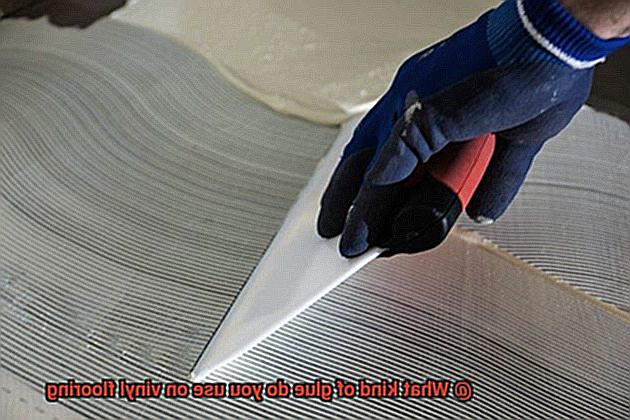
Epoxy Adhesive
Look no further than epoxy adhesive. This two-part glue is a top choice for high-traffic areas and moisture-prone spaces like bathrooms and kitchens due to its exceptional strength and waterproofing properties.
Before applying the adhesive, it’s crucial to prepare the subfloor by ensuring it’s clean, dry, and free of any debris that could compromise the bond. Then, mix the resin and hardener components of the epoxy adhesive according to the manufacturer’s instructions. Be sure to work quickly as the adhesive will begin to cure once mixed.
Using a notched trowel, spread the adhesive evenly onto the subfloor. Apply enough adhesive to ensure a strong bond without creating lumps or bumps under the vinyl flooring. Carefully lay the vinyl flooring onto the adhesive, smoothing out any air bubbles or wrinkles. A rolling pin or weighted roller can help ensure a secure bond.
To ensure optimal results, allow the epoxy adhesive to dry completely before walking on or applying any weight to the flooring. Depending on the brand of adhesive used, this can take anywhere from 24-72 hours. Remember to follow the manufacturer’s instructions carefully.
Choosing the Right Glue for Vinyl Flooring
When it comes to vinyl flooring, selecting the right glue for installation is crucial. With so many adhesive options on the market, choosing the perfect one may seem overwhelming. However, with some knowledge and a little research, you can make an informed decision and select the right glue for your vinyl flooring project with ease.
The first thing to consider when selecting a glue for vinyl flooring is the type of subfloor you will be installing on. Different adhesives are designed for different types of subfloors, such as concrete, plywood, or OSB. It’s essential to choose an adhesive that is compatible with your subfloor to ensure proper adhesion of your vinyl flooring.
Another factor to consider is the type of vinyl flooring you will be installing. Some adhesives are suitable for both sheet vinyl and luxury vinyl tile (LVT), while others are specifically designed for one or the other. Always read the manufacturer’s instructions carefully to ensure you choose the correct adhesive for your specific type of vinyl flooring.
Additionally, it’s important to weigh the pros and cons of using either a water-based or solvent-based adhesive. Water-based adhesives are more environmentally friendly and easier to clean up, while solvent-based adhesives tend to have stronger initial tack and bond strength. Carefully considering which type of adhesive is best for your needs will help you make an informed decision.
Lastly, it’s crucial to consider the overall quality and reputation of the adhesive brand you choose. Choosing a reputable brand with a proven track record of success can give you peace of mind and ensure a successful installation.
ttBKNbJPL1c” >
Conclusion
In summary, the glue you choose for your vinyl flooring project can make or break its longevity and durability. With countless adhesive options on the market, it’s easy to feel overwhelmed when selecting the right one. But fear not. By understanding the different adhesive types, application methods, and key factors to consider, you’ll be able to make an informed decision.
Before getting started, it’s crucial to evaluate your subfloor’s condition. Unevenness and moisture can wreak havoc on your vinyl flooring over time, so it’s essential to address any issues beforehand.
Different types of vinyl flooring require specific adhesives. Sheet vinyl typically needs a full spread adhesive that covers the entire subfloor before installation. LVT can be installed using a full spread or perimeter adhesive or even a peel-and-stick backing on individual tiles or planks.
When selecting an adhesive for your project, take into account factors such as the subfloor type, type of vinyl flooring being installed, and environmental impact. Always follow manufacturer recommendations carefully and don’t hesitate to consult with a professional if you’re unsure about which glue to use.
Choosing a reputable brand with a proven track record is always a smart move when it comes to adhesives. By following these tips and tricks, you’ll be well on your way to achieving that perfect vinyl floor covering without any peeling or bubbling issues in sight.

